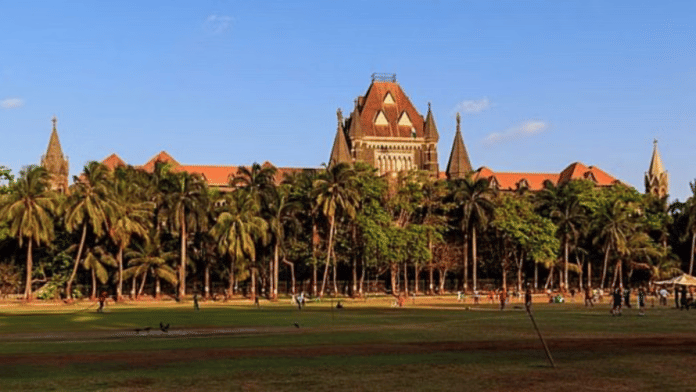New Delhi: The Bombay High Court has quashed a nearly decade-old Maharashtra government notification that prohibited cinema operators from charging a convenience fee from customers booking tickets online, a ruling that reinforces the principle that the executive cannot restrict a business group’s fundamental right to carry out business without authority.
The court Thursday ruled that cinema operators are free to charge a convenience fee as part of their business decisions and that such charges do not fall under the scope of the Entertainment Duty Act, 1923, which only empowers the state to collect entertainment duty from those involved in recreational services.
The Bombay High Court said that if a customer finds it convenient to book online and pay a convenience fee for it, the state cannot prohibit multiplex owners from offering such a service.
The ruling by a bench of Justices M.S. Sonak and Jitendra Jain was in response to three writ petitions filed by cinema operators and associations: Big Tree Entertainment Pvt Ltd (BookMyShow), FICCI-Multiplex Association of India and Priya Village Roadshow (PVR) Ltd.
The petitioners challenged two government orders that prohibited the collection of service charges or convenience fees for online cinema ticket bookings. The Maharashtra government issued one of these orders on 4 April 2013 and the other on 18 March 2014.
The petitioners argued that these orders violated their constitutional right to carry on business under Article 19(1) (g) of the Constitution, as the state lacked statutory authority to impose such a prohibition.
Article 19 (1) (g), in essence, guarantees citizens of the country the fundamental right to practise any profession or to carry on any occupation, trade or business.
The court analysed various sections of the Maharashtra Entertainment Duty Act, 1923, and concluded that no provision empowered the state to issue such a ban on convenience fees. It ruled the orders were unconstitutional and struck down parts that prohibited cinema operators and multiplexes from charging a convenience fees when customers booked their movie tickets from such platforms.
The court said that the government orders banning the collection of convenience fee had no “statutory basis” and, therefore, could not be used to deny the petitioners their fundamental right to conduct business under Article 19(1)(g) of the Constitution.
“Therefore, in our view, the impugned G.O.s, to the extent that they prohibit collection of convenience fees on the tickets booked online, violates Article 19(1)(g) of the Constitution of India, and therefore, the impugned G.O.s to the extent challenged herein is required to be quashed and set aside,” the court said in its 40-page order.
The court said it was the customer’s choice whether to book tickets online or buy them at the theatre. If a customer preferred the convenience of booking online and paying the convenience fees, the state could not restrain the petitioners from charging the fee, as the theatre owners have invested in technology to provide such a service.
The court went further and cautioned the government against overstepping its reach in how business owners run their operations.
“If business owners are not permitted to determine the various facets of their business (in accordance with law), economic activity would come to a grinding halt. The choice of whether to book the ticket online or purchase it at the theatre is left to the customers,” said the court.
Also Read: Donut is the new popcorn with Bombay HC to decide whether it should be taxed at 5% or 18% GST
Entertainment Duty Act, 1923
The Entertainment Duty (ED) Act, 1923 (earlier known as the Bombay Entertainment Duty Act), was enacted to facilitate the imposition and collection of entertainment duty by the state. The court noted that restricting theatre owners or others from charging convenience fees for online bookings does not come within the scope or intent of the ED Act.
Section 7 gives the state government the authority to make rules to ensure the collection of entertainment duty and to implement the provisions of the Entertainment Duty Act.
“Section 7 empowers the State Government to make Rules for securing the payment of the entertainment duty and for carrying into effect the provisions of the ED Act,” said the court.
The 2013 and 2014 orders simply aim to ban the collection of convenience fees, without providing any further justification. The court especially took notice of the fact that under Section 7(1) and its sub-clauses, the government of Maharashtra did not have the power to pass the Government Orders prohibiting the collection of convenience fees.
What are convenience/platform fees?
Convenience fees are additional charges that a service provider imposes for offering customers the option to complete a transaction through a convenient method, most commonly, online or digital payment channels.
They are not a part of the original ticket price or any tax levied on the customer. Rather, it is meant to cover costs associated with payment gateway charges, technology maintenance, and third-party service providers.
According to the official BookMyShow’s support website, a convenience fee is levied on transactions for online booking facilities. “It enables customers to book tickets in advance for the shows desired to be attended by them across theatres and timings of their choice and thus avoid the hassle of traveling to the cinema/venue in advance and wait in long queues to book desired seats for shows of their choice,” it said.
(Edited by Sugita Katyal)
Also Read: Bombay HC has left women advocates without PoSH shield. We must extend the Act to Bar Councils






